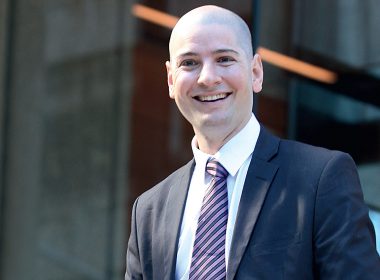Angela Wood is a partner at Maddocks and a specialist in health and aged care. She has acted for a range of clients including public, private and not-for-profit healthcare providers and advised on responding to the Royal Commission into Aged Care Quality and Safety. Recently placed on the Best Lawyers list for 2020, Wood tells LSJ how a Special Commission of Inquiry early in her career led to a lifelong passion.
In 2008, Peter Garling handed down his Final Report in the Special Commission of Inquiry into Acute Care Services in NSW public hospitals. I was a fairly junior lawyer at the time working in a health care team that assisted a local area health service on providing a response.
The issue concerned the appointment of Graeme Reeves to the Southern Area Health Service as a specialist Visiting Medical Officer in obstetrics and gynaecology. As it turned out, Reeves had been banned from practising obstetrics but, through a process that involved deliberate deception, had managed to get himself appointed on the NSW South Coast.
Reeves had a long history of problems and complaints. He had practised in at least three hospitals in Sydney where there had been a number of issues. He also had a diagnosed medical condition impacting his ability to deliver quality health services. His problems weren’t just in how he dealt with patients, but also in how he related to other staff.
Despite having been given a very clear message from the Medical Board that he was not able to practise obstetrics except in a dire emergency, he construed that to mean he could do obstetric work when there was nobody else available. It took some time before it all came out that he had been banned. Even after he was directed verbally by the Area Health Service and gave undertakings that he wouldn’t practise obstetrics, he continued to in the same way.
Ultimately, his contract was terminated and he was later de-registered due to professional misconduct. Civil proceedings were brought against him and a criminal investigation was undertaken into the deception that was carried out. What really impacted me was looking at what enabled this situation to occur and what changes would need to be implemented to prevent it in the future.
At that point in time, you couldn’t get online and look at an online register of practitioners, which will show whether a practitioner has a condition on their registration. While impairment conditions aren’t normally disclosed in full, a ban on practising obstetrics, for example, would now be identified. It highlights the importance of having a national framework for registration that is consistent and publicly accessible.
Reeves was someone who didn’t accept the conditions imposed on him and looked for ways to get around it. You can understand how hard it can be for a medical practitioner, given practising medicine is their livelihood and identity. However, the risk to public safety was substantial.
In working with the Area Health Service in responding to the terms of reference and the Garling Inquiry, I really felt for those individuals and the difficulty they’d had in dealing with and responding to this man. One of the lessons it taught me is the need for professional teams to work together and support each other in ensuring safe health care for patients.
It made me passionate about the system itself and what it needs in order to deliver health services in a way that’s of a high quality and safe to the public. How do you ensure you’ve got the best possible system to pick up those red flags?




